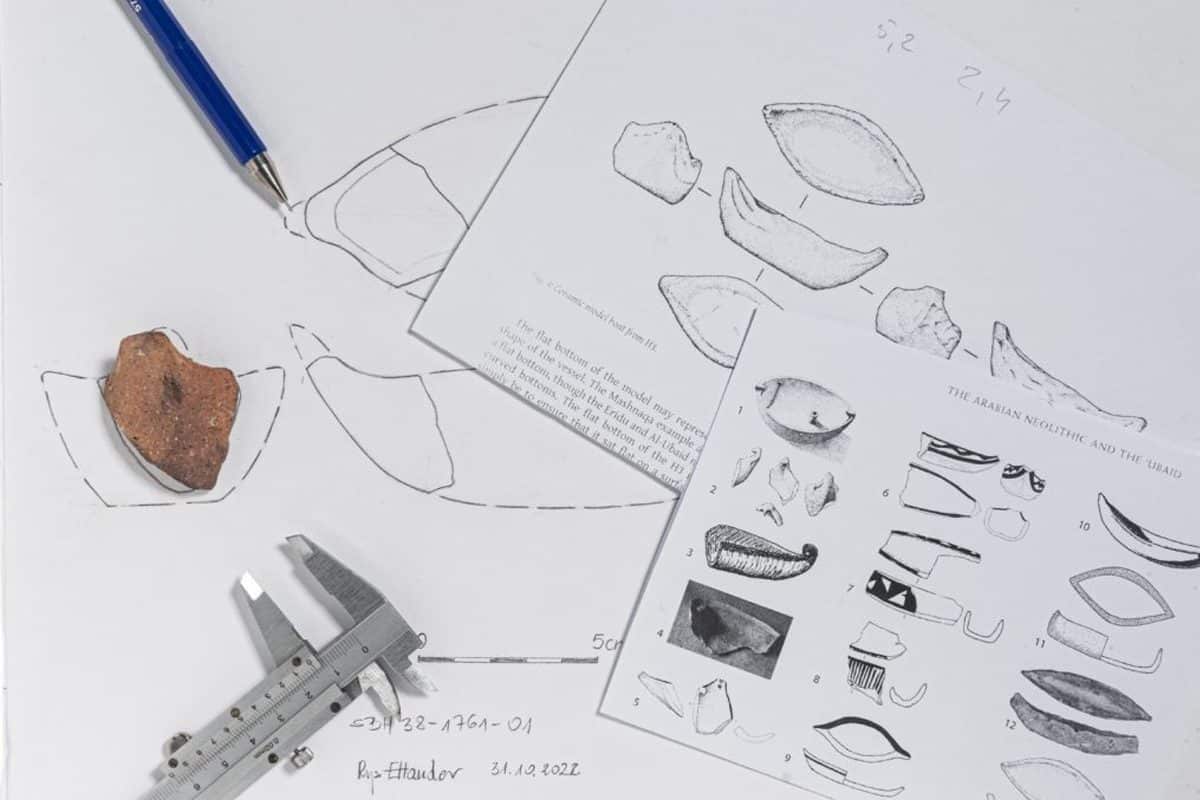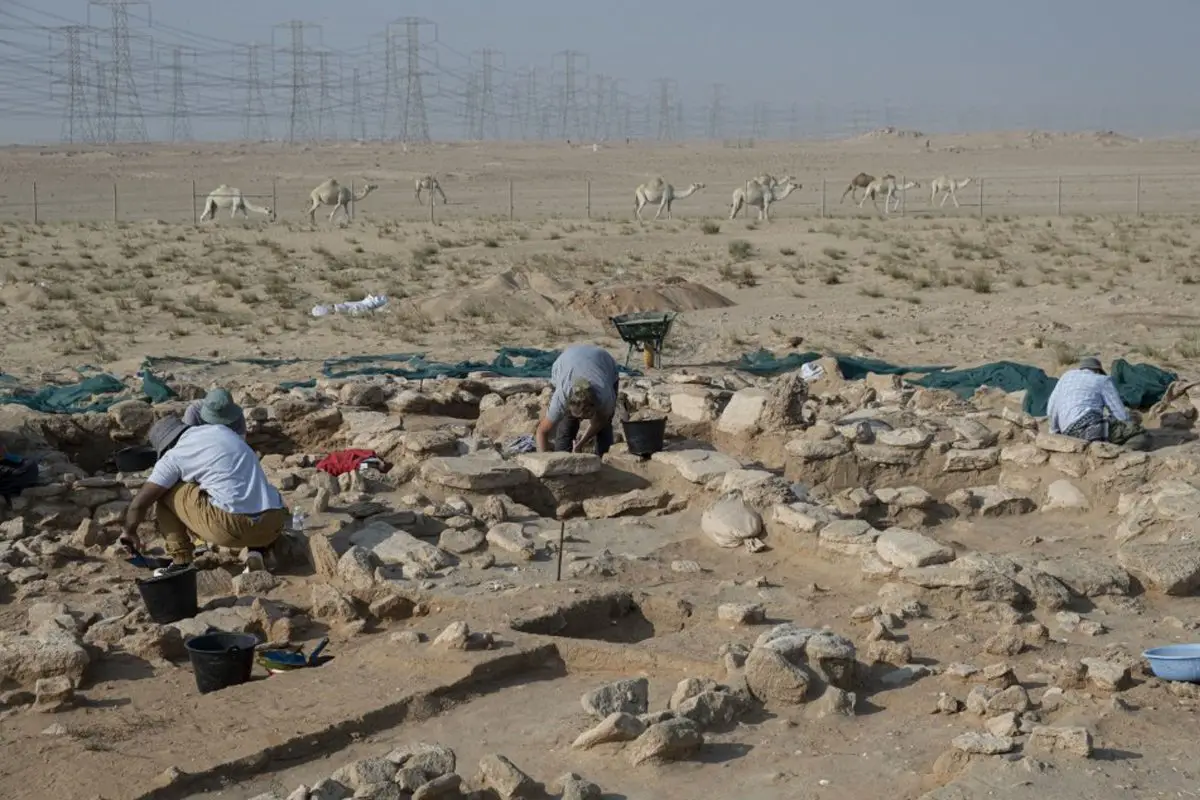A Kuwait-Polish Archaeological Mission (KPAM), working with archaeologists from the Centre of Mediterranean Archaeology of the University of Warsaw, have uncovered a fragment of a boat model among new finds while excavating at Bahra in northern Kuwait.
The team has been conducting archaeological research at a site designated Bahra 1, located in the desert region of Al-Subiya near the north coast of Kuwait Bay.
The site contains material evidence from the Arabian Neolithic and the Chalcolithic Ubaid culture, a people from the prehistoric period of Mesopotamia that developed in southern Mesopotamia in the middle of the 6th millennium BC.
Previous excavations have uncovered a building interpreted as a temple, which the team have continued to explore to determine how it functioned within the wider settlement.
Other discoveries from previous research at Bahra 1 includes the largest collection of Ubaid period pottery in the Arabian Peninsula, and a fragment of a copper pin which is now on display at the Kuwait National Museum.

As part of this season’s excavations, archaeologists have continued to study a complex of buildings, which appear to have been rebuilt several times during the site’s occupation.
While excavating one of the rooms in the complex, a fragment of a stone pendant was uncovered that depicts a bird of prey with spread wings. Depictions of such birds are known from Ubaid seals from northern Mesopotamia. Speaking of the discovery, Professor Belinsky from PCMA UW said: It wouldn’t be unusual at a later date, but here in the 6th millennium BC, such an object is quite surprising”.
Archaeologists have also found a fragment of a boat model among pieces of ceramics, which according to the researchers, is a typical find for archaeological sites from the Ubaid period and suggests a connection with sea contacts from this period.
Header Image Credit : Fot. J. Sliwa





